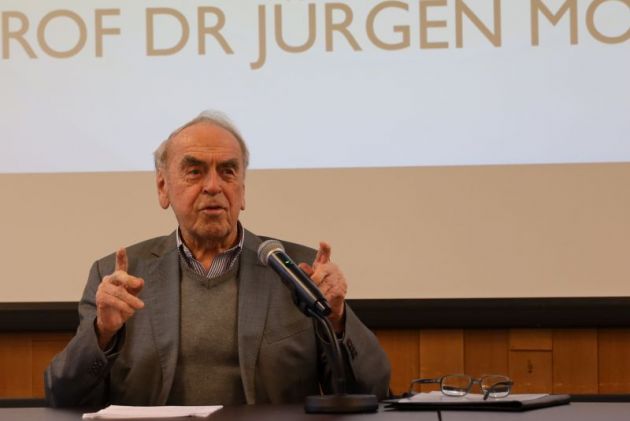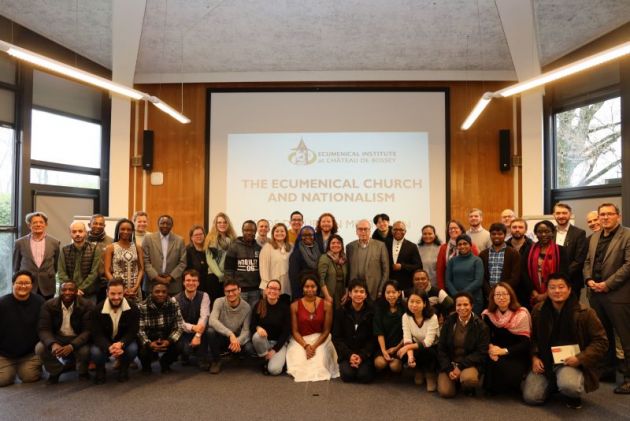Jürgen Moltmann, theologian who survived life under Nazi regime, leaves students spellbound with his account

Students sat entranced as the theologian recounted that after serving in the Hitler Youth and the German Army as a "patriot" in World War II, he turned his back on nationalism and the horrors of that conflict.
Prof. Jürgen Moltmann, the renowned German Reformed theologian, had a simple message.
"The church of Christ is present in all the people on earth and cannot become 'a national religion.'
"The church of Christ ecumenically embraces the whole inhabited earth. She is not a tribal religion, nor a Western religion, nor a white religion, but the church of all humanity," Moltmann said to applause from his young audience.
He also said that the new wave of nationalism taking root in the contemporary world is a "setback for humanity," noting that "humanity precedes nationality" after recounting growing up under the yoke of Nazism in Germany.
None of the young students from the World Council of Churches Ecumenical Institute at Bossey and the University of Geneva who came to hear him speak on the topic "The Ecumenical Church and Nationalism" on 3 December had heard such a first-hand account of that terrible war in the last century.
Students questioned Moltmann after his speech, one from Indonesia saying that as a minority in her country, Christians have to show their patriotism. One member of the audience asked if humanity can find a legitimate word for the love of one's nation that is a healthy one.
The students also lined up for "selfies" with the professor after his moving account of the war that shook the world and humanity.
"The church of Christ is not national, but it is a church of all the nations and humanity," Moltmann said.
Bossey lecturer Rev. Odair Pedroso Mateus, who heads the WCC Faith and Order Commission, noted that the 93-year-old war veteran and theologian had taken himself alone on a six-hour train journey from Tübingen in Germany to Geneva with no airs and graces.
"LIVED IN EXTREME NATIONALISM"
"In my youth, I lived in extreme nationalism, patriotism and the Nazi dictatorship. When Hitler came into power in Germany in 1933, I was seven years old. My larger family was divided in anti-Hitler socialists and pro-Hitler Nazis."
When he was 10 years of age, his parents had to send him to a Hitler youth organization, which he disliked for the militarism, but "I was a patriot."
His father in 1937 was given a choice, either to join the Nazi party or face dismissal as a teacher. He joined the party to save his family.
"Afterwards he volunteered for the army, to get out of the pressure of the Nazi party. During World War II, he had said: 'Hitler must not win this war'. He also said, 'A man must defend his fatherland.' He couldn't solve this contradiction. He returned in 1946 out of French prisoner-of-war camps."
When Moltmann was 16, his whole school class was drafted to the German Army, where he was trained to operate anti-aircraft batteries.
"After three years in British POW camps, I returned home in 1948 lost over Auschwitz [extermination concentration camp] and the killing of German soldiers by the SS [a brutal Nazi paramilitary unit]. Since then, I have been convinced there is no fatherland in dictatorship."
"My love for Germany is constitutional patriotism," he added.
He said, "The church worships Christ as the reconciler of the cosmos and is interested not only in peace on earth but peace with the earth. The ecological peace of creation matters to her in times of climate change and the destruction of the earth."
Rev. Simone Sinn, vice dean at the Ecumenical Institute, said that Moltmann is one of the world's most widely read theologians, followed not only by Protestants but also by Roman Catholics and those of the Orthodox tradition.
